April 30, 1861;
The New York Herald
American Civil War Chronicles
The Governors of Maryland and Virginia
April 30, 2021
The Families of the Volunteers
April 30, 2021
April 30, 1861;
The New York Herald
The New York Troops
April 30, 2021
Note: This particular news article—a document written in 1861—includes terms and topics that may be offensive to many today. No attempt will be made to censor or edit 19th-century material to today’s standards.
Shaler’s Flexible Roller Skates
April 30, 2021Frank Leslie’s Illustrated Newspaper, April 30, 1861
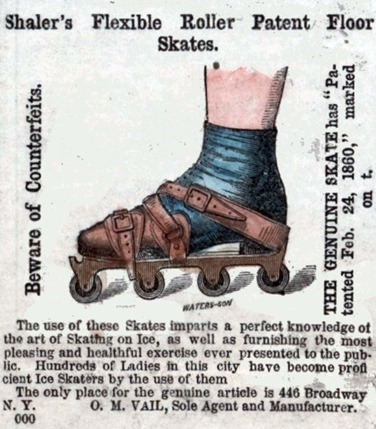
Other images on the page are also in color.
I haven’t found any information on how these and other images in the Fort Sumter NM/Charles Pinckney NHS Curatorial Storage Facility came to be colored.
Facts in Regard to Fortress Monroe
April 30, 2021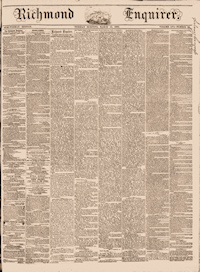
Richmond Enquirer
The Fort Reinforced
April 30, 2021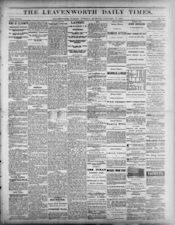
Daily Times (Leavenworth, KS)
It is true that this Government considers the early reduction of Fort Pickens as highly important…
April 30, 2021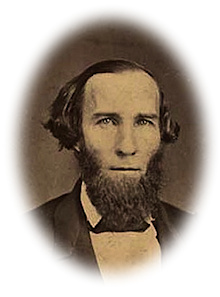
WAR DEPARTMENT, C. S. A.,
Montgomery, April 30, 1861.
Brig. Gen. BRAXTON BRAGG, Commanding at Pensacola:
GENERAL: Apprehending that you might have construed the suggestions thrown out from this Department as to the erection of batteries on Santa Rosa Island, and as to the attack on Fort Pickens, into orders to proceed first to the occupation of that island, and next to an immediate bombardment and general assault of the fort, I write to say that as to both points I desire you will consult your own judgment and discretion. It is true that this Government considers the early reduction of Fort Pickens as highly important, but it is not desired that you will proceed until you shall feel assured of success through an entire confidence in your own arrangements, and the dispositions must be left with yourself, save when positively instructed.
Very respectfully,
L.P. WALKER.
Events Diary, April 30, 1861
April 30, 2021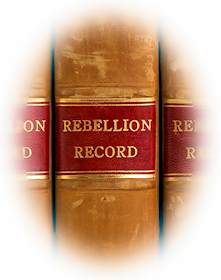
–The Virginia Convention passed an ordinance to provide against the sacrifice of property, and to suspend proceedings in certain cases. It is to apply only to debts due non-residents, and not to those due the State. The ordinance is to remain in force until repealed or changed by the Convention or the General Assembly; and if not so repealed or changed, is to expire at the end of thirty days after the first day of the General Assembly.– National Intelligencer, May 7.
–The school-teachers of Boston, Mass., relinquished the following proportion of their salaries during the continuance of the national troubles:
Superintendent of Schools and Masters of Latin, English High and Girls’ High and Nora–25 per cent.
Masters of Grammar Schools and Sub-masters of Latin and English High Schools–15 per cent.
Sub-masters of Grammar Schools and Ushers of Latin and English High Schools–12 ½ per cent. Ushers of the Grammar Schools–10 per cent.
The aggregate of the percentage on the salaries will amount to between $12,000 and $13,000.–N. Y. World, May 8.
–The first cannon was cast in Nashville, Tenn, last Saturday, April 27.–Charleston Mercury, May 8.
–The members of the New York Yacht Club met, and resolved to offer, through the Commodore, the services of all their yachts to the Government of the United States for any duty compatible with the qualities and dimensions of the vessels.–N. Y. Tribune, May 2.
–A. H. Stephens, Vice-President of the seceding States, arrived at Atlanta, Georgia, on his return from Virginia. He was received by a crowd of citizens, to whom he made a speech.–(Doc. 120.)
–The New Jersey Legislature met, and Gov. Olden delivered his Message, recommending a loan of $2,000,000 for war purposes, and a State tax of $100,000 per annum; the thorough arming of the State, and the raising of four regiments additional to those called for, to be held subject to the call of the Government. He also recommended that provision be made for the defence of the Southern part of the State, either by fortified posts or by an intrenched camp.–N. Y. Tribune, May 1.
–Daniel Fish, charged with selling guns to the South, was examined before the U. S. Commissioner and discharged.–N. Y. Herald, May 1.
–The First Battalion of the Third Alabama Regiment left Montgomery this morning for Virginia .–Col. Kershaw and staff, with Captains Richardson, Hasles, and McMannus’ companies of South Carolina troops arrived at Richmond, Va., this evening at 5 o’clock.–Charleston Mercury, May 1.
–General Harney is released by Governor Weber of Virginia.
The Washington City Councils passed a series of resolutions, expressing the strongest devotion to the Union, and thanking the citizen soldiery of the North now there, for coming forward so promptly at the call of the Government.–N. Y. Times, May 1.
–The Toronto (Canada) Globe of to-day, in a long article on American affairs, says that the North, by their impatience with reference to President Lincoln’s policy, ignore the stupendous and delicate task he has before him, and will drive the country to anarchy and chaos.
It advocates strengthening Mr. Lincoln’s hands, and to abstain from perplexing his councils.
The Leader, the Government organ, fears that Canada may become involved, and advocates an armed neutrality, and suggests that the Canadian Government represent to the imperial authorities the expediency of sending six or eight regiments of the line for the protection of the frontier.
–The Palmetto Guard, Marion Artillery, and German Artillery returned from Morris’ Island to Charleston, S. C. “Their brave and noble actions during the bombardment of Fort Sumter are not forgotten, we can assure them, but will ever live in grateful remembrance.”–(Doc. 121.)– Charleston News, May 1.
–A United States Armory is to be established at Rock Island, Ill., in the place of the one destroyed at Harper’s Ferry.–N. Y. Tribune, April 30.
The Twenty-Eighth Regiment N. Y. S. M., composed of the best class of Germans, and commanded by Colonel Bennett, left Brooklyn, N. Y., for the seat of war. At 11 o’clock the last farewell was said; the Regiment formed, about 800 men, and headed by Meyers’ Band and a corps of drummers and fifers, they marched through Myrtle avenue and Fulton street to Fulton Ferry, where they embarked on board the ferry-boat Nassau, and were taken direct to the steamer Star of the South, then lying at Pier No. 36 North River. The streets through which they marched were lined with enthusiastic citizens to bid the troops God speed, and from nearly every house waved the Stars and Stripes and those other inspiring signals–white handkerchiefs. The troops were everywhere cordially received. At the foot of Fulton street a few brief farewells were said, and amid the booming of cannon and the cheers of the populace, the troops took their departure.
Fifty-seven recruits for Company G, Capt. Thorne, and a number for Capt. Sprague’s Company of the Thirteenth Regiment, went with the Twenty-eighth to join their Regiment at Annapolis.–(Doc. 122.)
–A meeting of the Harvard Medical School was held in Cambridge, Mass., at which the following resolution was adopted:
Resolved, That we, the members of the Harvard Medical School, do here and now resolve ourselves into a volunteer medical corps, and as such do hereby tender our services to the Governor of this Commonwealth, to act in behalf of this State or country, in whatever capacity we may be needed.–Boston Transcript, May 1.
–Citizens of Philadelphia, representing all parties, addressed a congratulatory letter to Lieut.-General Scott.–(Doc. 123.)
–Yesterday the Louisiana Guards, and to-day the Montgomery Guards, left New Orleans for the seat of war in Virginia. The former company, previous to their departure, were presented with a beautiful flag by Mrs. A. H. Seaman at her residence.–N. O. .Delta, April 30.
Civil War Day-by-Day
April 30, 2021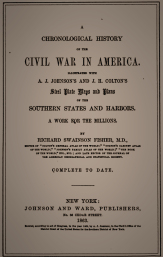
April 30, 1861
- New York Yacht Club offers its vessels to the Federal government
A Chronological History of the Civil War in America1
- Legislature of New Jersey convened in extra session; the Governor recommended the appropriation of $2,000,000 for war purposes.
- Virginia State Convention passed an ordinance establishing the navy of Virginia and authorizing the banks to issue one and two dollar notes.
- A Chronological History of the Civil War in America by Richard Swainson Fisher, New York, Johnson and Ward, 1863
Morris Island.
April 29, 2021
Charleston Mercury
April 29, 1861
The general appearance of this now well known and famous island has been greatly changed since the 13th April. The batteries bearing on Sumter have been removed, and many other arrangements warranted by our possession of Fort Sumter, have been completed.
The 17th Regiment, Col. JOHN CUNNINGHAM, will return to the city today, and the remnant of Col. GREGG’S (1st Regiment South Carolina Volunteers) command will be honorably discharged, they having served within a few weeks of their term. We learn that some of the men will proceed to Virginia. Fort Sumter is reported to be in fighting order. For general information, it may be as well to say that it will not cost half a million of dollars to put it in perfect order, as was reported by an officer of the late garrison.
Important from Annapolis.
April 29, 2021
New York Herald
April 28, 1861
ANNAPOLIS, April 27—6 P.M.
About twelve thousand troops in all have arrived at Annapolis. Three thousand from New York are expected tonight. I learn from good authority that no more troops will be ordered without complete preparation for service.
The continued mild weather only saves great suffering. One thousand slept in the open air last night. There is plenty of provisions, but the Commissariat is badly organized. The supplies by the Kill Von Kull were timely, especially the tent cloth. Teams are in great demand for transport of medical stores.
The brig of war Perry is stationed at the entrance of the harbor, and a fine park of artillery on the right.
The tenth company of the Eighth Massachusetts regiment, Captain Briggs, in a steam tug, last night cut out the receiving ship Allegheny, in Baltimore harbor, and anchored her under Fort McHenry. [continue reading…]
Major Robt. Anderson
April 29, 2021
Charleston Mercury
April 29, 1861
MAJOR ROBT. ANDERSON has made it a point at every stopping place at the North, to complain of our treatment in firing on Sumter after the Barracks were enveloped in flames. Did anybody prevent him pulling down his dirty stripes? And why is it that he has not told Northern people that he had a 10 inch Columniad planted on the Parade Ground at Fort Sumter, at an elevation sufficient to enable him to throw a 10 inch shell into the crowd of unarmed citizens, and helpless women, whom he knew full well would congregate in White Point Garden at the firing of the first gun. This is not a rumor the gun has been seen, the elevation and direction have been noticed, and by his own acknowledgment, and that of his officers, the guns in exposed places could not be worked without the certainty of destruction; so our mothers, wives and sisters have not been slaughtered, because our guns kept him in his casemates. This is the brave man who was supplied with fresh meat, vegetables, &c., &c., and was thought by some to be a friend.
Situation of Affairs.
April 29, 2021
New York Herald
April 28, 1861
Everything appears to go on favorably at the seat of war. The Northern troops in Washington are in good health and spirits. The Fifth regiment of Pennsylvania and Massachusetts regiments attended divine service yesterday in the Hall of Representatives, the bands supplying the sacred music on the occasion. The steamer City of Richmond, plying between Richmond and Philadelphia, was seized at the former port on the 18th, and a force of Virginia troops placed on board; but the captain subsequently obtained her release from Governor Letcher, and she arrived at Philadelphia yesterday, with the crews of the New York steamers Jamestown and Yorktown, 60 men, and 120 passengers.
Large bodies of troops are said by the Richmond papers to be raising in all parts of Virginia and North Carolina, that batteries are being erected at Portsmouth Hospital and Craney Island, mounted with Dahlgren guns, and that five volunteer companies from Georgia had arrived at Portsmouth. The ladies of Virginia, it appears, are following the example of their sisters at the North, in manufacturing uniforms and clothing for the soldiers.
Twelve thousand troops in all had reached Annapolis from the North up to Saturday, and it is stated that no more volunteers will be ordered unless they are fully equipped for service. It would appear that the preparations to receive the troops at Annapolis were very imperfect, and had not the weather been very mild, they would have suffered much. As it was, a thousand of them had to sleep in the open air on Friday night, and although there is abundance of provisions the commisariat was so badly managed that some of the troops were without food for twenty four hours. [continue reading…]
Our Montgomery Correspondence.
April 29, 2021
Charleston Mercury
April 29, 1861
MONTGOMERY, April 25, 1861.
The crew of the steamship Star of the West arrived in this city last night, and will leave in the evening train for New York. They are very communicative, and manifest pleasure at the manner they have been treated during their journey through the Confederate States. Not a single unpleasant thing has occurred, nor a single indignity been offered them. They say the capture was effected on the 17th by a Texan force of ninety men under Capt. VAN BUREN, who came upon the steamer Rusk. After being taken on board their errand was made known to the astonished Captain, who submitted gracefully to a matter of necessity. The Captain of the Rusk then took command, and run the captured vessel into the harbor of Galveston, and from thence to New Orleans. The wages of the seamen, amounting in the aggregate to near $1800, have been paid by our Government, and the amazed but delighted seamen sent on their way rejoicing.
The difficulties in the Second Volunteer Regiment of this State have been adjusted. The companies from Mobile have been added to it, which make the regiment better than before, as the new companies are among the best in the State. One of them (the Mobile Cadets) arrived this evening, and will go into camp here. The whole of the regiment are now prepared to march on Sunday morning for Lynchburg, Virginia.
Gov. MOORE, who has been some days away, has now returned. It is rumored that he has a little matter of reprisal on hand which will attract some attention. Some time ago Gov. MOORE purchased a quantity of muskets in New York, to be paid for on delivery here, which were seized by the authorities North. Although there was no pecuniary loss, the [continue reading…]
The News.
April 29, 2021
New York Herald
April 28, 1861
The Fireman Zouaves, under the command of Col. Ellsworth, did not leave the city yesterday, as announced, in consequence of the men not being fully armed and equipped. Large delegations of the Fire Departments of this city, Brooklyn and Jersey city, assembled to take leave of their comrades, but from the cause above stated were disappointed. It is now positively announced that they will leave for the seat of war today.
Mr. C. J. Ingersoll, of Philadelphia, has suggested that Ex-Presidents Buchanan, Pierce, Fillmore, Tyler and Van Buren, become arbitrators to settle the existing difficulties between the North and South.
By a despatch from Annapolis we learn that on Saturday night the Tenth Company of the Eighth Massachusetts regiment, in a steamtug, cut out the receiving ship Alleghany in Baltimore harbor, and placed her under the guns of Fort McHenry.
The war was the topic discussed in every pulpit of the city yesterday, and the clergy of all denominations, in their prayers, offered up a petition that the horrors of war might be softened, if not averted. In consequence of the pressure upon our columns, we are compelled to exclude all the reports of sermons. Rev. Mathew Hale Smith, Chaplain of the Twelfth regiment, who sent with the regiment, and returned in the Baltic, preached in the chapel Thirty fourth street and Broadway. Impressive religious services were held at the camp, in Castle Garden, yesterday. Among the preachers on the war was the Rev. James Freeman Clarke, of Boston, before the Second Unitarian Congregational Society, at the chapel, corner of Clinton and Congress streets. The Rev. Henry Ward Beecher preached a sermon in favor of sustaining the Union and constitution. In stirring terms he called upon his congregation to uphold the government, and suggested that the Plymouth church volunteers should be effectively armed with revolvers.
“The boys were with the two Lincoln boys riding…”—Horatio Nelson Taft
April 29, 2021
MONDAY 29
This has been a pleasant day and quite an exciting one on account of the movements of the Military. The bal. of the RI Regt came today and the whole were reviewed by the Prest, Genl Scott, and the Cabinet officers. Myself and wife, Julia and Willie, were in the East Room. The boys were with the two Lincoln boys riding until the review was nearly over. Self & Julia were introduced to Gov Sprague, Col Burnside, and other officers of the RI Regt by Surgeon Genl Wheaton at the Pat office. Came home about dark from Willards, some weary.
The three diary manuscript volumes, Washington during the Civil War: The Diary of Horatio Nelson Taft, 1861-1865, are available online at The Library of Congress.
Savannah—Terrible accounts of the state of things in Washington—General Robert E. Lee commands Virginia troops—William Howard Russell
April 29, 2021
April 29th.—This morning up at six A.M., bade farewell to our hostess and Barnwell Island, and proceeded with Trescot back to the Pocotaligo station, which we reached at 12 ·20. On our way Mr. Heyward and his son rode out of a field, looking very like a couple of English country squires in all but hats and saddles. The young gentleman was good enough to bring over a snake hawk he had shot for me. At the station, to which the Heywards accompanied us, were the Elliotts and others, who had come over with invitations and adieux; and I beguiled the time to Savannah reading the very interesting book by Mr. Elliott, senior, on the Wild Sports of Carolina, which was taken up by some one when I left the carriage for a moment and not returned to me. The country through which we passed was flat and flooded as usual, and the rail passed over dark deep rivers on lofty trestle-work, by pine wood and dogwood tree, by the green plantation clearing, with mud bank, dyke, and tiny canal mile by mile, the train stopping for the usual freight of ladies, and negro nurses, and young planters, all very much of the same class, till at 3 o’clock P.M., the cars rattled up alongside a large shed, and we were told we had arrived at Savannah.
Here was waiting for me Mr. Charles Green, who had already claimed me and my friend as his guests, and I found in his carriage the young American designer, who had preceded me from Charleston, and had informed Mr. Green of my coming.
The drive through such portion of Savannah as lay between the terminus and Mr. Green’s house, soon satisfied my eyes that it had two peculiarities. In the first place, it had the deepest sand in the streets I have ever seen; and next, the streets were composed of the most odd, quaint, green windowed, many colored little houses I ever beheld, with an odd population of lean, sallow, ill-dressed unwholesome-looking whites, lounging about the exchanges and corners, and a busy, well-clad, gaily-attired race of negroes, working their way through piles of children, under the shade of the trees which bordered all the streets. The fringe of green, and the height attained by the live oak, Pride of India, and magnolia, give a delicious freshness and novelty to the streets of Savannah, which is increased by the great number of squares and openings covered with something like sward, fenced round by white rail, and embellished with noble trees to be seen at every few hundred yards. It is difficult to believe you are in the midst of a city, and I was [continue reading…]
I experienced for the first time the feeling of coming in contact with the bullets, bayonets, and sabres of our enemies.—Elisha Franklin Paxton
April 29, 2021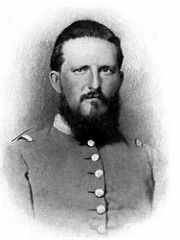
Harper’s Ferry, April 29, 1861.
I received your letter by Mr. Campbell and was very happy to hear from you. Nothing could be half so interesting as a line from dear wife and little ones at home. Be cheerful and act upon the motive which made me leave you to risk my life in relieving my State from the peril which menaces her. I hope I may see you again, but if never, my last wish is that you will make our little boys honest, truthful, and useful men. Last Thursday night, I experienced for the first time the feeling of coming in contact with the bullets, bayonets, and sabres of our enemies. We were called up suddenly upon the expectation of an engagement which proved a false alarm. Now I know what the feeling is, and know I shall enter the struggle, when it comes, without fear. Next to the honor and safety of my State in her present trial, the happiness of wife and little ones lies nearest my heart. My health was never better. I have spent two nights on duty in the open air without suffering, and feel assured now that my health will not suffer by such exposure.
Kiss the little ones for me and never let them forget “papa gone,” perhaps forever. Accept for yourself every wish which a fond husband could bestow upon a devoted wife.
“Georgy would like to go as a nurse, but…”—Jane Stuart Woolsey to the Sisters Abroad.—Letters of a Family During the War.
April 29, 2021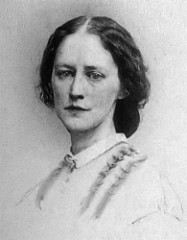
Seventh Regiment safe and jolly. No fighting yet,– April 29th, 1861.
Eliza has been making a flag for their church. It was her part to cut out and sew on the stars. She sent for a large number of very small testaments, for knapsacks, for the Fishkill Regiment, and we have found some sheets of flags on paper, like stamps, to paste in them, each with an appropriate verse – “Fight the good fight;” “Endure hardness as a good soldier of Jesus Christ,” etc.
On Thursday evening Charley had a few friends to supper – a substitute for the birthday party – and we decorated the table with flags, bunting, red, white and blue mottoes, etc. They seemed to have a gay time and sang many songs to a squealing accompaniment from Pico. It is by no means unlikely that a Home Guard will be needed with all the militia ordered away and seditious people biding their time in town. Mansfield Davies is with his regiment at Fort Schuyler, drilling. They go south next week. George Betts goes today as Lieutenant-Colonel Second Zouaves. The great barracks in the park are nearly finished – meant as a mere shelter for troops in transit and there is a camp in the Battery– officers’ marquee and a whole fleet of tents. We hear from Norwich that last Sunday was spent by Dr. Bond’s congregation in making red flannel shirts for the regiment who were to leave next day. Mr. Davies asks us for bandages, etc., for their surgeon, which we shall supply with great readiness. Mother has made a great deal of beautiful lint. There is an organization of medical men to train nurses for the camp; lectures are to be given and bands of ten ladies are to walk some wards in the hospitals, as a preparation. Georgy has been to some of the lectures with Mrs. Trotter, and would like to go as a nurse, but would no doubt be rejected, as none but “able-bodied and experienced” women are to be taken. While I write a company goes down Broadway with the eternal Reveille. We had a grand patriotic sermon last Sunday from Dr. Prentiss, and now we have only patriotic prayers and psalms, with the petition for the President borrowed bodily from the Prayer Book.
This morning I got, to my surprise and pleasure, an official document containing a letter from Will Winthrop of the Seventh, written, no doubt, in acknowledgment of the little kindnesses we were able to show him on leaving. I quote, as it’s far too bulky to send: [continue reading…]
This afternoon I went with Mrs. Chesnut to call on Mrs. Davis.—Charlotte Wigfall
April 29, 2021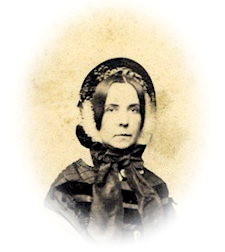
(excerpts)
“29th: I have been this morning to witness the opening of Congress, and hear the President’s message. It was an admirable one, worthy of his reputation. It gives such a fair and lucid statement of matters, as they now stand, that I am sure it will do good abroad, if not at home. . . . This afternoon I went with Mrs. Chesnut to call on Mrs. Davis. I am going tomorrow to her reception. . . . You allude to reports given in the Northern papers of the Fort Sumter affair. It is only what might have been expected of them, that they would garble and misrepresent the truth; but I must confess that Major Anderson’s silence, and the disingenuous bulletin he sent to Cameron have surprised me. He takes care not to tell the whole truth, and any one to read his statement would suppose he had only come out on those conditions, whereas, he surrendered unconditionally—the U. S. Flag was lowered without salute while your father was in the fort. This was seen, not only by your father, but by the thousands who were on the watch, and it was only owing to General Beauregard’s generosity (misplaced, it seems, now) that he was allowed to raise it again, and to salute it on coming out of the Fort, and take it with him. . . . And this conduct too, after the kind and generous treatment he met with from the Carolinians. Judge Ochiltree is here and tells me Tom is a private in a company that Capt. Bass has raised in Marshall. . . . The drums are beating here all the time, and it really makes me heartsick when I think about it all.
“I don’t think though that the military enthusiasm can be very high at the North as I see they are offering $20 additional pay to volunteers a month. That fact speaks volumes. I suppose it is to be accounted for in the anxiety to get rid of the mob population who might be troublesome at home.”
“At fifty-one, I can hardly follow the pursuit of arms; but I will write and preserve a DIARY of the revolution.”—Rebel War Clerk, John Beauchamp Jones
April 29, 2021
April 29th.–I wrote to my agent on the Eastern Shore to send me the last year’s rent due on the farm. But I learn that the cruisers in the bay are intercepting the communications, and I fear remittances will be impracticable. I hope my family are ready by this to leave Burlington. Women and children have not yet been interfered with. What if they should be compelled to abandon our property there? Mrs. Semple had her plate seized at New York.
At fifty-one, I can hardly follow the pursuit of arms; but I will write and preserve a DIARY of the revolution. I never held or sought office in my life; but now President Tyler and Gov. Wise say I will find employment at Montgomery. The latter will prepare a letter to President Davis, and the former says he will draw up a paper in my behalf, and take it through the Convention himself for signatures. I shall be sufficiently credentialed, at all events – provided old partisan considerations are banished from the new confederacy. To make my DIARY full and complete as possible, is now my business. And,
When the hurly-burly’s done,
When the battle’s lost and won,”
if the South wins it, I shall be content to retire to my farm, provided it falls on the Southern side of the line, and enjoy sweet repose “under my own vine and fig-tree.”
Southern Chivalry has been altogether over estimated
April 29, 2021
New Haven Daily Palladium, April 29, 1861
The people of the North have heard so much of southern chivalry for many years, that they have been impressed, in a rather indefinite way it is true, with the idea that there is somewhere in the South, a very considerable amount of chivalry which would neither brook a wrong or purposely commit one, and that this chivalry in defense of its honor would as soon walk into a grave as to sit clown to a good dinner with a hungry appetite. While our people have never been in the slightest degree intimidated by their impressions of the existence of this fiery element of our national character, they have always been disposed to look upon it forbearingly, even when severely provoked by it, and to regard it as the result of climate and education, for which the impatient gentlemen under such influences should be very much indulged. Hence they have had pretty much their own way in the government for more than seventy years. Personal apologies and national compromises have been tendered them whenever they required them, except when their demands were too outrageous to be even considered. These concessions have been imputed to wrong motives, and as the North grew more and more forbearing, the chivalry grew more and more arrogant and domineering, until a crisis has been reached in which they are to learn how they are really estimated at the North, and how erroneous have been their ideas of the northern character. [continue reading…]
Steamer
April 29, 2021
April 29. 1861
Sir:
You will please to have as strong a War Steamer as you can conveniently put on that duty, to cruise upon the Potomac, and to look in upon, and, if practicable, examine the Bluff and vicinity, at what is called the White House, once or twice per day; and, in case of any attempt to erect a battery there, to drive away the party attempting it, if practicable; and, in every event to report daily to your Department, and to me. Your Obt. Servt.
Events Diary, April 29, 1861
April 29, 2021
–A meeting of the Bar of Suffolk scanty was held at Boston, Mass., to consider the present situation of the country, and the measures necessary, when a blow is aimed at the existance of the Government, and the supremacy of law in the country. The meeting was numerously attended. Resolutions sustaining the Federal Government were adopted, and speeches were made by Judge Thomas, B. F. Hallet, J. C. Park, and others–Boston Transcript, April 30. –William C. Rives, Senator Hunter, Judge Brockenbrough, and Messrs. Preston and Camden, have been appointed by the Richmond Convention as delegates to the Montgomery Congress from Virginia.–Montgomery (Ala.) Post, May 1.
–By order of Governor Harris of Tennessee, seventy-five thousand dollars’ worth of Tennessee bonds and five thousand dollars in cash, belonging to the United States, which were in possession of the Collector at Nashville, were seized by the State authorities. The seizure was conditional, the property to be held in trust until the Government restores the property of the State and its citizens, involved in the seizure of the steamer Hillman by troops of the Federal Government.
The steamer Hillman was seized at Cairo, by the Illinois troops, on the 26th of April, because she was laden with munitions and other articles contraband of war.–National Intelligencer, May 7.
–The Charleston Mercury of to-day contains the following:–”To His Excellency Governor Pickens.–Will you oblige the mothers, wives, and sisters of the Carolina troops, and appoint next Thursday as a day of Thanksgiving to Almighty God for the late bloodless victory.–ONE OF MANY.”
–Several companies of the Third and Fourth Regiments of Georgia passed through Augusta for the expected scene of warfare–Virginia. Sixteen well-drilled companies of volunteers and one negro company, from Nashville, Tennessee, offered their services to the Confederate States.–Charleston Mercury, April 30.
–At New Orleans, La., the steamships Texas, Tennessee, and the G. W. Hewes, the property of Charles Morgan, Esq., were taken possession of by order of Gov. Moore. Captain Warren of the steam-tug Tuscarora, who was arrested on the charge of having furnished information to the captain of the Daniel Webster, which caused him to leave this port, was released on giving bonds of two thousand dollars for his future loyal conduct. It is ascertained that the blame rests less upon him than upon the owners of the above-named steamers. –N. O. Delta, April 30.
–A military review took place at New Orleans, La. The city was one long military camp. Where the main body of troops appeared was not the only place to find the soldiers. They were in every section of the city, on the river and in the suburbs; in fact, New Orleans was completely under the control of military arms, within and around. It was one of those days that brought to memory the period of 1814. The streets, the house-tops, the windows, and balconies of every building were thronged with ladies, and at least thirty thousand persons witnessed a military pagent not equalled in this section of the South. The enthusiasm was immense, and beyond description.–(Doc. 115.)
–At Roxbury, Mass., a beautiful silk flag was presented, by the ladies of that city, to the volunteer company of Capt. Chamberlain. Hon. J. S. Sleeper presided, and the presentation address was made by Rev. Dr. George Putnam. The flag was placed in the hands of Capt. Chamberlain by a sweet little girl tastefully dressed in white, relieved by red and blue. Capt. Chamberlain knelt as he received the flag, and responded briefly in a voice choked with emotion. Capt. C.’s company stood before the platform in a hollow square, and responded with loud cheers to the patriotic sentiments which the occasion called forth.–Boston Transcript, April 30.
–Secession in Maryland was defeated by a direct vote in the House of Delegates of the State, of fifty-three against secession and thirteen for it. The State Senate published an address, signed by all its members, denying the intention of passing an ordinance of secession. –N. Y. Times, April 30.
–Ellsworth’s Fire Zouaves left New York for Annapolis, Md. They were escorted to the boat by an immense body of brother firemen and citizens.–(Doc. 116.)
–Jefferson Davis sent a message to the Congress at Montgomery to-day. While reading in Congress, the allusion to Virginia was loudly cheered. A quotation from President Lincoln’s proclamation advising the people of the South to retire to their homes within twenty days, was met with derisive laughter from the crowd in the galleries. Nearly all the members of Congress were present.– Charleston Mercury, April 30.–(Doc. 117.)
–Citizens of Weverton, Frederick Co., Maryland, in a letter to Governor Hicks, protest against the entrance of Virginia troops from Harper’s Ferry into their State.–(Doc. 118.)
–There was an interesting display of patriotism by the young ladies of Brooklyn (N. Y.) Heights Seminary. They unfurled a beautiful flag at their chapel, in Montague street, where speeches were made by Dr. West, the principal; Professor Washburne of Harvard Law School, and Rev. Dr. Storrs.
A preliminary meeting, to make arrangements for providing for the families of volunteers, was held at the Brooklyn Institute, Mayor Hall presiding. $2,500 was subscribed on the spot. Committees, composed of the most wealthy and active citizens were appointed to further the objects of the meeting.–New York Times, May 1.
–Virginia Ladies, resident in Washington, are constantly warned by their friends at home to leave that city before its inevitable destruction by the Southern arrny.–N. Y. Herald, May 1.
–A spontaneous Union meeting was held in East Baltimore, Md. 1,500 to 2,000 persons were present, and great enthusiasm was manifested. Strong Union resolutions were adopted, and the national banner was unfurled.
Regular daily communication between Baltimore and Philadelphia was fully reestablished. –N. Y. Herald, April 30.
–Up to this day seventy-one thousand volunteers offered their services to Governor Dennison, of Ohio, to fill the thirteen regiments required by the Proclamation of President Lincoln.–N: Y: Courier and Enquirer, April 30.
–The American flag was raised upon the steeple of North Dutch church at New York. Nearly every church edifice and public building in the city is decorated in the same manner.–(Doc.119.)–Commercial Advertiser, April 30.
A Message from Jefferson Davis to The Provisional Congress of the Confederate States
April 29, 2021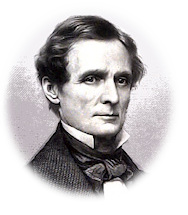
“The declaration of war made against this Confederacy by Abraham Lincoln, the President of the United States, in his proclamation issued on the 15th day of the present month, rendered it necessary, in my judgment, that you should convene at the earliest practicable moment to devise the measures necessary for the defense of the country.” (Journal of the Congress of the Confederate States of America, 1861-1865)
Congress assembled to-day at noon, in compliance with the proclamation of President Davis convening an extra session. (New York Times)
On the opening day of the “extra” session of the Confederate States Provisional Congress on April 29, 1861, Jefferson Davis sent the legislators a lengthy message—in excess of 7800 words—on the reasons for the called assembly, the unstable conditions that now existed, and the needs of the new nation. Included in the message was a discussion of a primary basis for the split from the Northern states, slavery, with nearly 1300 words—about 17% of the message—devoted to that long-festering dispute between the sections.
Immediately following his discussion on slavery, Davis wrote, “the people of the Confederate States, in their conventions, determined that the wrongs which they had suffered and the evils with which they were menaced required that they should revoke the delegation of powers to the Federal Government which they had ratified in their several conventions. They consequently passed ordinances resuming all their rights as sovereign and Independent States and dissolved their connection with the other States of the Union.”
In his message to the Provisional Congress, Davis thus made a direct connection between slavery and secession. It is an important work, along with the declarations of causes by South Carolina, Mississippi, Georgia, and Texas,—and Florida’s “Lost” Draft Declaration of Causes that was undated, untitled, and never issued—and other documents, connecting secession directly to the protection of the institution of slavery and the very real power that went with it.
It’s hard to refute the words of the men who made the decisions for what turned out to be futile attempts to leave the Union.